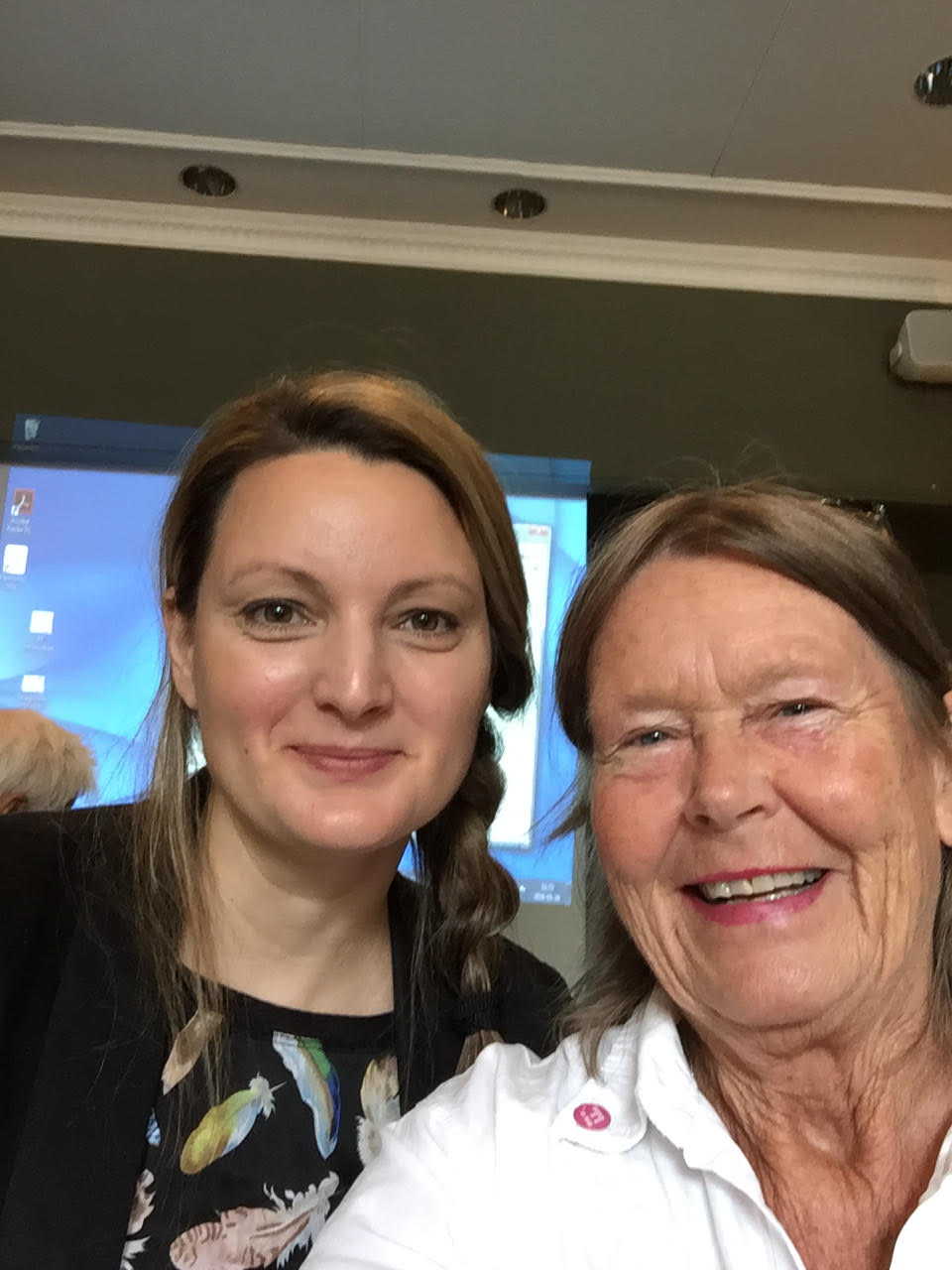Hotline: +381 61 63 84 071
“Women’s voices: Civil society and migrant women’s rights“

“WOMEN’S VOICES: Civil society and migrant women’s rights“
The workshop “Women’s Voices: Civil Society and Migrant Women’s Rights” was held on May 29, Göteborg, Sweden. WIDE+ Swedish member GADIP, Gender And Development In Practice organized this conference in Gothenburg together with a WIDE + member, FISOFA and partners.
This workshop depicted successful and innovative examples of the work of women’s rights associations, in particular women migrants and refugee groups and organisations. The examples that were presented at this workshop are the basis for contemplating about how society’s political institutions can cooperate better with women’s rights associations to improve the protection of the female migrants’ rights. Integration policies have for a long time paid little attention to the challenges of migrant women in society. As a result, twofold discriminations faced by women who have migrated – as refugees, relatives of their family, workers, etc. – are not being adequately addressed in the policy.
This workshop highlighted exemplary initiatives in women’s organisations in Sweden and compared them with initiatives of other countries in Europe. There is a great need for experience exchange both nationally and internationally. The initiatives chosen come from three thematic areas are the following: violence, labour market and economic and civil rights.
The workshop is a part of the 2018 international project: “Strengthening Innovative Solutions to Protect Female Migrant and Refugee Rights“, coordinated by WIDE+ with subsequent national conferences in Serbia, Spain and Denmark in the Autumn of this year, as well as various European activities.
This project was made possible and supported partially by the Foundation Open Society Institute donation in cooperation with the Human Rights Initiative of the Open Society Funds and national partners in Sweden.
The workshop also brought together WIDE+ members from all over Europe as a meeting was planned simultaneously with the workshop within the two year project “Promoting Gender Equality, Migration, Security and Democracy through Adult Education” with project partners WIDE Austria (project leader), CEIM (Spain), Le Monde selon les Femmes (Belgium), GADIP (Sweden) and Karat Coalition (Poland). This project was financially supported through the EU programme Erasmus +.
Conference speakers:
Sahar Armandi, Elnaz Zara, Djana Filipovic, Terrafem, Göteborg, Sweden: “Supporting migrant women in Sweden – experiences, problems and visions”.
Jelena Hrnjak Atina, Belgrade, Serbia: “Violence against women and girls among refugee and migrant population in Serbia”.
Kinga Lohmann and Agata Maksimowska, Karat Coalition, Warsaw, Poland: “Assimilation or integration? Migrant and refugee women perspective on state policy”.
Janviere Ntamazeze, Fisofa, Göteborg, Sweden: “How migrant women can obtain economic empowerment”.
Annika Lindström, Gothenburg Rights Center Against Discrimination, Göteborg, Sweden: “Working against discrimination on individual and structural levels”.
Marianne Lööf, Gothenburg Women’s Center, Göteborg, Sweden: “Female pluralism in work life”.
Nancy Contreras, Systuga place for creativity, Sweden: “Learning how to make dresses. Work training for women with a migrant background”.
About the chosen initiatives:
Terrafem is an organisation active in cities across Sweden. They offer services for several languages to migrants during the day and in the evening, in addition to legal support. The leaders of the organisation will address their experiences on how such organisation has developed over time and their visions for the future.
NGO Atina from Serbia is dealing with the situation of refugee women in Serbia and how the organisation works on promoting their rights and creating visibility on the matter of violence in order to build support for those women in need.
Karat Coalition in Poland explained the problematic consequences a state can create for migrant women through its integration policy. In Poland the state policy promotes either integration or assimilation.
Fisofa is an organisation that promotes economic literacy for migrant women through basic economic education and competence training. They shared the knowledge on how the courses delivered to female migrants, to include refugees, can improve their living conditions.
The Center for Social Rights and Fight against Discrimination promotes human rights and works to actively prevent discrimination and exploitation on the grounds of ethnicity, race religion, gender and disabilities. They provide education and counselling free of charge. They gave examples of how they work on female social entrepreneurship. The organisation has a long-standing experience in supporting women empowered through team work.
A similar objective is found in the organisation working within ABF where learning and work is blended. Examples are taken from learning language, sewing and learning simultaneously. They help migrants to adapt to the Swedish lifestyle and create new habits.
Some of these organisations are connected to “Kvinnokedjan, the chain of women” that was initiated few years ago. It is a network of organisations which connects women working on various topics important for women, especially immigrant women.
More about the workshop can be found via the following link: https://wideplus.org/2018/05/27/womens-voices-civil-society-and-immigran...












 FACEBOOK
FACEBOOK TWITTER
TWITTER YOUTUBE
YOUTUBE